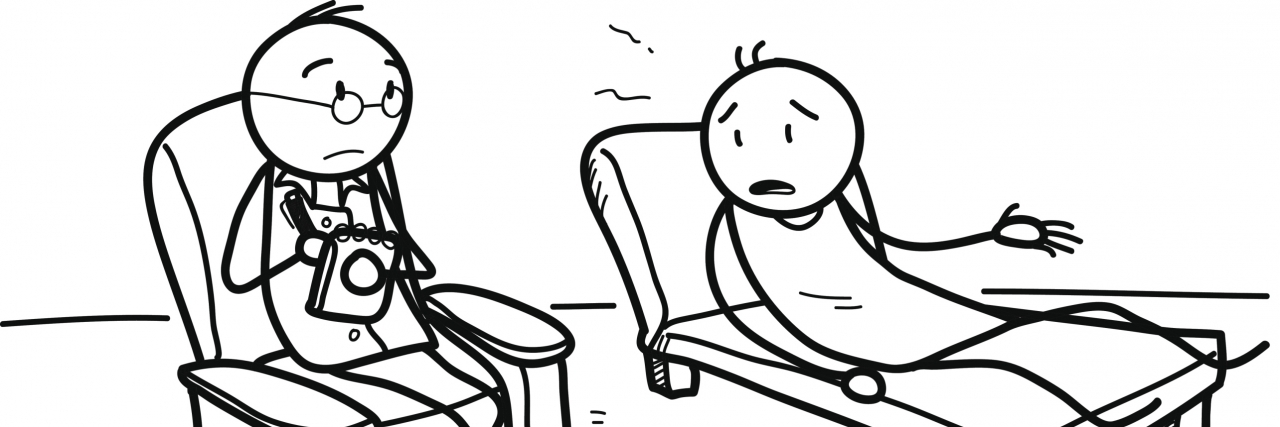I recently had a Skype conversation with a life coach who asked to hear the details about my mental health story to better understand why I wasn’t responding to the methods she believed worked so well.
Every time I tried to explain what was so painful about my experience, she cut me off with three little words.
“I was 11 when I heard the phone message that my therapist, who I thought of more as a friend than a doctor had violated my confidential –”
“I get that.”
“My parents gave me antidepressants. They kept giving me antidepressants even after they told me I could stop if the side effects exacerbated my symptoms and overrode me every time I came to them crying to ask them to take me –”
“I get that.”
“When I asked them what the medication was for, and my parents lied to my — ”
“I get that.”
“I was being bul–”
“I get that.”
The three words she repeated said she understood, but did she really?
Did she understand I had contemplated ending my life at 11? Did she understand I had tried? With those three words, all I heard was, “Yeah, yeah, I get it, you were in pain, hurry up, you’re wasting my time.”
She wanted me to look at the story in this way:
a) I was being bullied.
b) My parents tried help me treat my mental illness.
c) Said treatment plan failed.
“You are living in a story,” she said. “All I hear are people who were standing up for you.”
“Really? A story?”
“Yes,” she said.
“Would you expect an 11-year-old to have the cognitive tools to do any more than what I did?” I asked.
“You are living in a story. You are so righteous that you can’t move forward.”
The complete lack of empathy in her voice bowled me over, so much so that I couldn’t acknowledge the fact that there might be logic in what she was saying. She didn’t really understand what I had gone through, the complete betrayal I had felt. The words “I get that” took me straight back to my therapist’s couch, back to the times when I felt like I wasn’t being respected or heard. She wasn’t really listening.
Just like it took work for me to build up the conviction of these beliefs, it’s going to take time to find what works for me and work to disbelieve these thoughts rather than simply deciding I’ve had enough.
Maybe some can look at the story the way this particular individual wanted me to and move forward, but I am not one of those people. Story or no story, this incident shaped me. It made me who I am today. I don’t want to just “drop” it like a tangible object. Recovering from trauma is not easy, and I did not appreciate how this individual completely dismissed the emotional complexity that comes with these sorts of incidents.
I don’t want to forget the girl who just knew there was a way to be and was painfully aware she did not fit the bill. The girl who could not live up to the standard of beauty being thrown in her face with every magazine rack because of her black hair and brown eyes. The girl who felt like an outsider. The girl who was picked last for any game involving a ball, the one who was always tagged “it” on the playground because she was the easiest to catch. The girl who would listen to the phone ring and cry with her books and wonder what was wrong with her, what she did to prompt her classmates to think it was OK to prank call her every night for two years.
I don’t want to forget her because I write for her. I am interested in what I am because of her. Righteous or not, that story has made me who I am. That story has allowed me to create an illusion about the sort of person I am, and being authentic is the scariest thing I have ever done.
If you or someone you know needs help, please visit the National Suicide Prevention Lifeline. You can also reach the Crisis Text Line by texting “START” to 741-741. Head here for a list of crisis centers around the world.
The Crisis Text Line is looking for volunteers! If you’re interesting in becoming a Crisis Counselor, you can learn more information here.
The Mighty is asking the following: What’s the best thing a medical professional has said to you related to your (or a loved one’s) disability, disease or mental illness? Check out our Submit a Story page for more about our submission guidelines.

